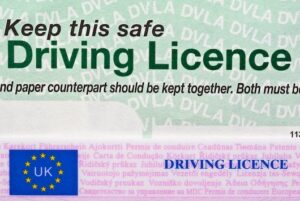Can you get COVID-19 after being vaccinated?
Can you get COVID-19 after being vaccinated?
Vaccinated people can still become infected and have the potential spread the virus to others, although at much lower rates than unvaccinated people. The risks of SARS-CoV-2 infection in fully vaccinated people are higher where community transmission of the virus is widespread.
Do COVID-19 vaccines reduce the risk of serious illness?
See full answer Recent data[1 MB, 68 pages] suggest COVID-19 vaccines become less effective at preventing infection or severe illness over time, especially for people ages 65 years and older. This is why booster shots are recommended for people ages 12 years and older who have completed their primary vaccination series. However, even as the vaccine’s ability to prevent infection decreases with time, COVID-19 vaccination continues to reduce the risk of hospitalization and death when people become infected with COVID-19. People who have certain medical conditions or who are taking medications that weaken their immune system may not be completely protected even if they completed the primary vaccination series.
How does the COVID-19 vaccine boost your immune system?
Vaccines work by stimulating your immune system to produce antibodies, exactly like it would if you were exposed to the disease. After getting vaccinated, you develop immunity to that disease, without having to get the disease first.
What exactly does the COVID-19 vaccine do to the body?
COVID-19 vaccines help our bodies develop immunity to the virus that causes COVID-19 without us having to get the illness.
What is the rapid COVID-19 test?
Rapid Point-of-Care tests, test performed or interpreted by someone other than the individual being tested, can be performed in minutes and can include antigen and some NAATs. Self-tests are rapid tests that can be taken at home or anywhere, are easy to use, and produce rapid results. Laboratory tests can take days to complete and include RT-PCR and other types of NAATs.Watch Video: Viral Test for COVID-19 [00:01:08] Antibody Tests An antibody test (also known as a serology test) can detect
Which COVID-19 tests are more accurate PCR or antigen tests?
PCR tests are more accurate than antigen tests. “”PCR tests are the gold standard for detecting SARS-CoV-2,”” says Dr. Broadhurst. “”It is the most accurate testing modality that we have. Dec 29, 2021
What is the difference between a PCR test and a rapid COVID-19 test?
“Unlike the PCR test, the antigen test can only determine if you have an active virus in your body. The rapid test can’t detect small amounts of the virus or asymptomatic cases as accurately as the PCR test can,” Heather said. The rapid test is less accurate and there is a greater chance for a false negative. Feb 9, 2022
What is the accuracy of the COVID-19 antigen test?
If possible, taking an at-home rapid COVID-19 test the day of the event is ideal. While these tests aren’t 100% accurate, a negative result strongly suggests that you’re not contagious at that particular time. Dec 3, 2021
Can COVID-19 be identified using an antigen test?
Antigen tests are commonly used in the diagnosis of respiratory pathogens, including influenza viruses and respiratory syncytial virus. The U.S. Food and Drug Administration (FDA) has granted emergency use authorization (EUA) for antigen tests that can identify SARS-CoV-2.
What is the LuSys COVID-19 antigen test?
The LuSys Laboratories COVID-19 Antigen Test uses a nasal swab, or a saliva (spit) sample intended to detect proteins, called antigens, on the SARS-CoV-2 virus. Mar 14, 2022
What kind of tests are used to see if you have COVID-19?
Diagnostic tests can show if you currently are infected with SARS-CoV-2, the virus that causes COVID-19. There are two types of COVID-19 diagnostic tests: Molecular tests, such as polymerase chain reaction (PCR) tests. Antigen tests, often referred to as rapid tests. Feb 28, 2022
What kind of viral tests are done to test for COVID-19?
Viral Test Types Laboratory tests can take days to complete and include RT-“PCR” tests and other types of nucleic acid amplification tests (NAATs). Rapid Point-of-Care tests can be performed in minutes and can include antigen tests and some NAATs.
What is the difference between SARS-CoV-2 and COVID-19?
In 2019, a new coronavirus was identified as the cause of a disease outbreak that originated in China. The virus is now known as the severe acute respiratory syndrome coronavirus 2 (SARS-CoV-2). The disease it causes is called coronavirus disease 2019 (COVID-19).
How long do COVID-19 vaccines last?
It is normal for virus-fighting antibodies—such as those that are stimulated by a COVID-19 vaccine—to wane over time. Monitoring antibody levels in the blood is one way to measure vaccine efficacy and research has found that protection remains high for six months after the second shot of a Pfizer or Moderna vaccine. 7 days ago
What’s the efficacy of the Pfizer COVID-19 vaccine after 90 days?
Among adults who received 2 doses of the Pfizer-BioNTech (BNT162b2) mRNA COVID-19 vaccine, the risk for SARS-CoV-2 infection increased gradually after 90 days, according to results of a study published in BMJ. Dec 16, 2021


